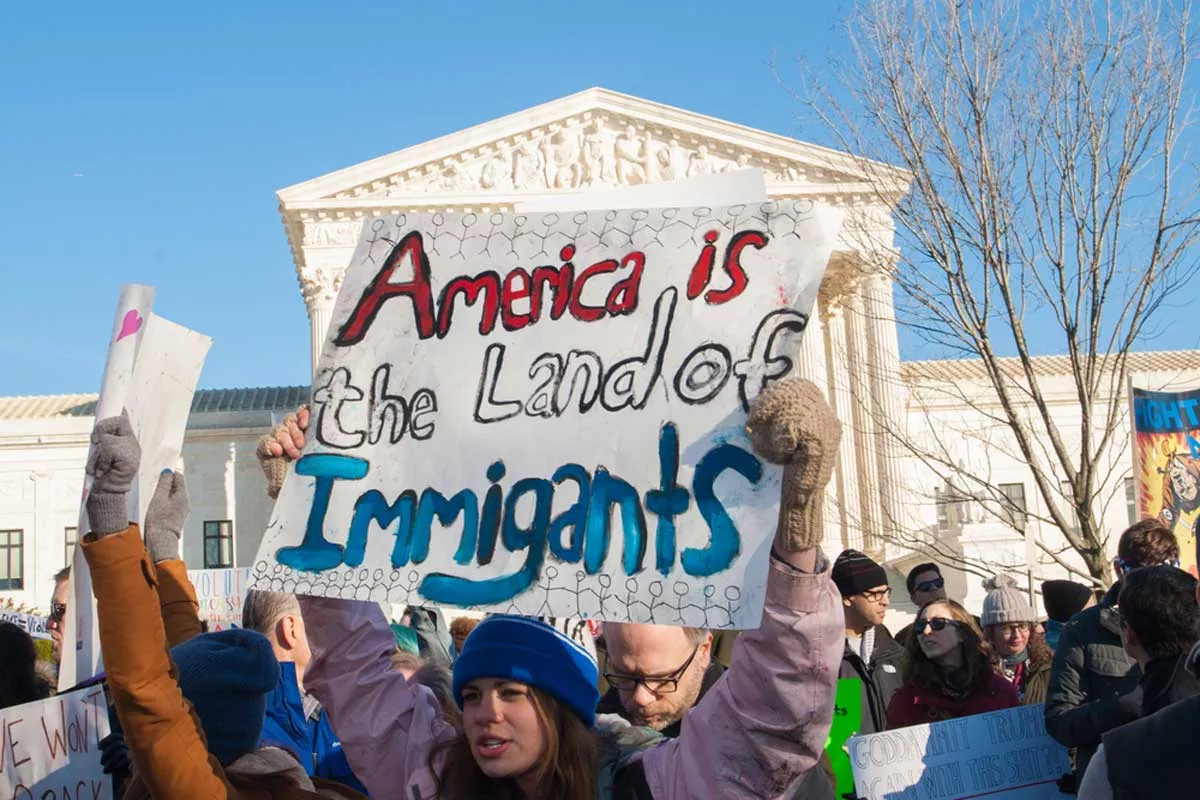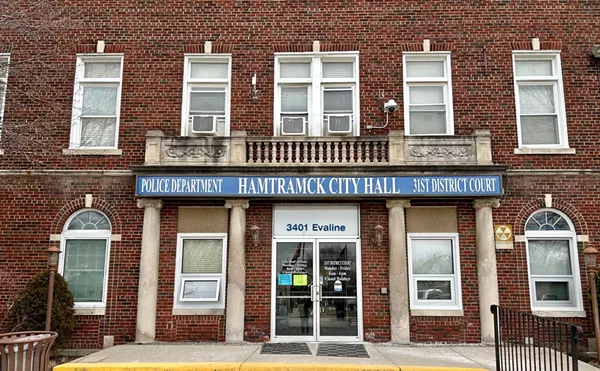Opinion: Being an immigrant during election season
Trump’s fanning the fires of hate isn’t only malevolent — it is extremely dangerous


Audio By Carbonatix
[
{
"name": "GPT - Leaderboard - Inline - Content",
"component": "35519556",
"insertPoint": "5th",
"startingPoint": "3",
"requiredCountToDisplay": "3",
"maxInsertions": 100,
"adList": [
{
"adPreset": "LeaderboardInline"
}
]
}
]
Here we are again, enduring yet another election season filled with inflammatory political rhetoric and campaign ads attacking immigrants. Attacks that seem to be everywhere. I can’t even casually scroll through social media without being traumatized.
The tactic of scapegoating and vilifying immigrants is far from new. But the intensity of these attacks, and the crazed turn things have recently taken, is unlike anything I’ve ever experienced.
I came to the United States from Mexico more than 40 years ago, moving here at the age of 4, when my farmworker parents brought our family to Michigan. For most of my childhood, we weren’t documented. Like the overwhelming majority of immigrants to this country, we worked extremely hard, obeyed the law, paid our taxes, and helped sustain the communities we became part of.
Life wasn’t easy. After leaving Mexico, we split our time between Michigan and Florida, following the harvests. At age 11, I joined my parents working in the fields, doing the back-breaking work of picking tomatoes, peppers, apples, oranges, and more. Always on the move, I would attend two or three different school districts every year. But having a better life meant receiving a good education, and so we persevered, despite the obstacles and discrimination we faced.
When I was 16, President Ronald Reagan’s amnesty program went into effect, putting me on a path to citizenship. As a result, eight years later, I was able to cast my first vote in the 1996 presidential race, and have been doing so in every election since then.
Over time, I’ve seen one politician after another try to win office by vilifying immigrants, a strategy intended to divide people into “them” and “us.” That effort hit a whole new level with Donald Trump’s successful presidential campaign in 2016. Now, like the villain in a series of bad horror movies, he’s back again, spouting rhetoric that has become even more extreme, and an agenda that’s terrifying.
As part of a series of memos detailing the positions of the major-party presidential candidates, the ACLU, where I work, had this to say about a second Trump presidency and immigration:
“If given a second term, Donald Trump promises to decimate American communities by targeting immigrants who are already contributing members of society and blocking new immigrants from coming lawfully to the United States. Trump has made clear that he will double down on what he did during his presidency — without regard for the law, decency, or common sense.”
Fostering fear of immigrants and fanning the fires of hate, as Trump’s doing, isn’t only malevolent — it is extremely dangerous.
“Donald Trump’s descriptions of people from other countries and other racial and ethnic groups as subhuman animals is the kind of language we see in countries before they have ethnic violence or even genocide. It’s the kind of language we see when authoritarian movements rise to power,” Brendan Nyhan, a political science professor at Dartmouth, recently told NPR. “He’s appealing to the worst aspects of humanity. It’s straight out of the textbooks, and we should be very worried with how mundane it now seems.”
My fear, and a corresponding amount of anger, hit a new peak after Trump made claims — instantly reported to be unfounded — about immigrants stealing and eating pets in Springfield, Ohio.
When I first heard Trump make that allegation, my initial reaction was laughter — that’s how clearly ridiculous it seemed. But then came the bomb threats and other turmoil — so much upheaval, in fact, that the Springfield’s mayor felt compelled to claim emergency powers to better deal with the risks of “civil unrest, cyber threats, and potential acts of violence” roiling his town.
Threats of violence that can easily spread. So yes, I am feeling more fear, and anger, than ever as the rhetoric aimed at immigrant communities becomes even more unhinged, with a significant number of people willing to believe it, no matter how crazy the lies might be.
With these scare tactics so pervasive, it is no surprise that Livingston County just passed a controversial resolution to have the Sheriff’s Department begin tracking all contacts with undocumented immigrants, a divisive and impractical move that critics like my organization the ACLU of Michigan, and many groups, say will undermine public safety for all county residents.
Along with everything else I’m feeling these days, I’m also a bit bewildered. Where, I wonder, are the ads singing the praises of immigrants and the many benefits we bring to a country that, with the exception of the Native People who first inhabited this land, is entirely a nation of immigrants and their descendants?
There is certainly much that can be highlighted, especially here in Michigan — a state that would have experienced a significant loss in population, and the resulting negative economic impact, were it not for the immigrants building their lives here. That fact was emphasized in a report released earlier this year by the American Immigration Council, which noted also noted:
“In 2022 alone, immigrants in the state held $23.1 billion in spending power, paid $5.5 billion in federal taxes, and paid $2.6 billion in state and local taxes.”
So, when you hear Trump and his allies vowing to round up and deport 11 million undocumented immigrants, think about what that will actually mean to our economy. Then think about this as well: It won’t only be grandparents, parents, children, and siblings subjected to the immeasurable heartache and stress of having their families ripped apart. It is also the fabric of communities across Michigan that will be shredded. We are your friends and neighbors and co-workers.
Despite being inundated by all these negative messages and threats to the well-being of immigrants, do you know what else I am feeling? Hopeful.
This November, my daughter, an American citizen born in this county, will cast her first ballot in a presidential election. A college sophomore pursuing her vision of the American dream, she will have the opportunity to vote for a candidate who, like her, is the daughter of two immigrants.
The hate spewing from Trump and those who have joined him in demonizing immigrants, and the trauma their hate-generating ads and rhetoric inflict, hasn’t yet stopped immigrants and their children from continuing to do the hard work of building a better America. Knowing that fills me with hope — for me, my daughter, and our country.
Elvira Hernandez is a program associate for the ACLU of Michigan.







